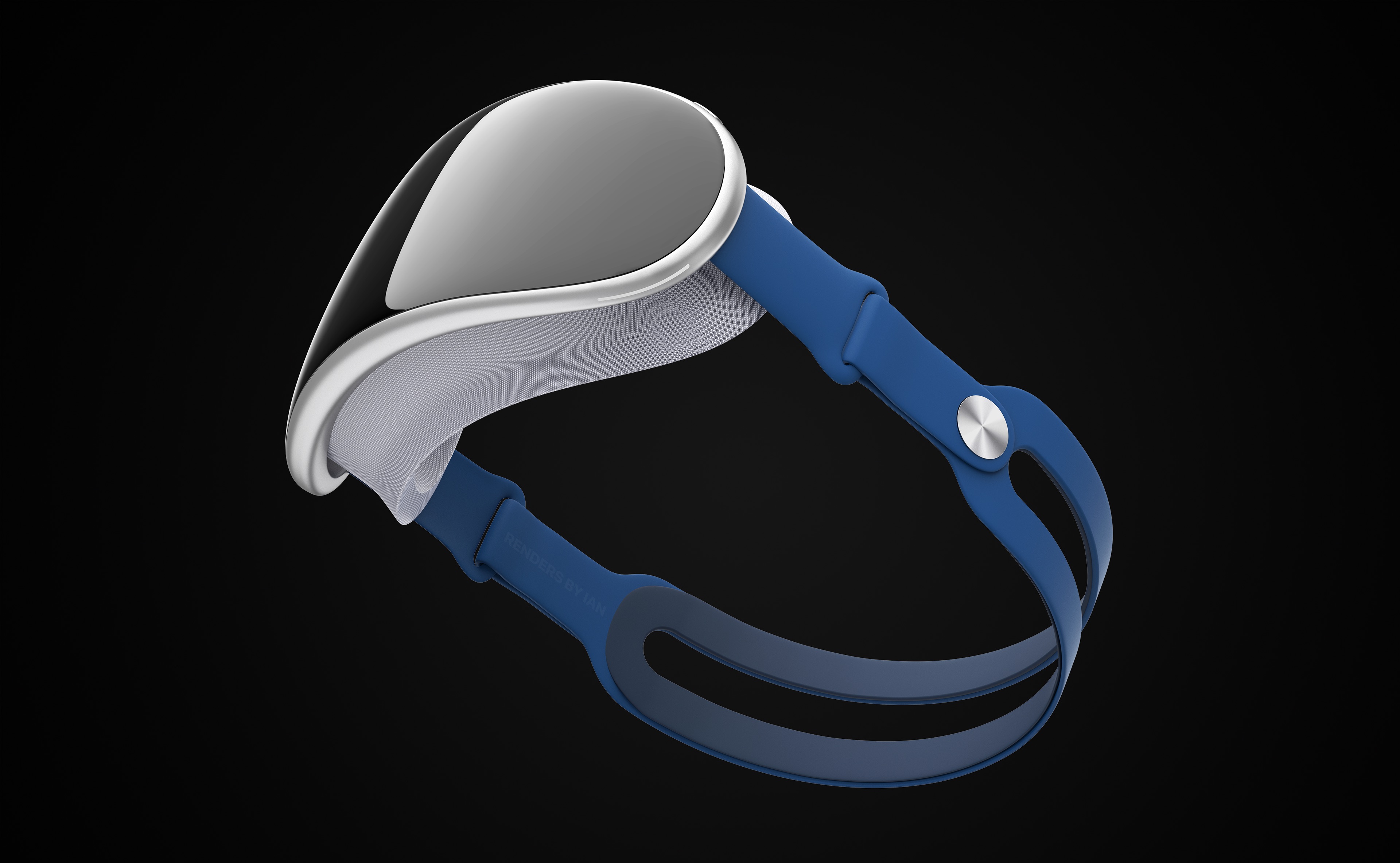![]() The Information
The Information's Wayne Ma today
published a lengthy report detailing technical and leadership challenges that Apple has faced during development of its long-rumored AR/VR headset, which is currently expected to be announced by the end of 2023.
Apple headset render created by Ian Zelbo based on The Information reporting
For example, the report claims that Apple's team working on the headset, led by former Dolby executive Mike Rockwell, regularly had to fight to get help with the project from other parts of the company. As of mid-2017, the team also worked out of office buildings in Sunnyvale, California that were several miles away from Apple's headquarters, which allegedly "helped preserve the group's invisibility to the rest of Apple."The report adds that the team considered swappable batteries for the headset that would enable users to wear it for up to eight hours per day, but the idea was eventually scrapped due to the complexities involved. As of 2021, the headset had a battery that could last "several hours, in line with similar products," according to the report.
The full report outlines many other challenges and is a worthwhile read for those interested in the development of Apple's headset.
Bloomberg's Mark Gurman, Takashi Mochizuki, and Debby Wu previously outlined issues that Apple has faced with the headset, ranging from
overheating to camera and software challenges. Gurman said the headset will be powered by two chips, with at least one on par with the M1 Pro chip in the latest 14-inch and 16-inch MacBook Pro models.
The Information last year
shared a render of Apple's supposed headset based on a "late-stage prototype" that it viewed. The report claimed the headset would have a curved visor with a soft mesh material, swappable headbands, and dual 8K displays. There
may even be a third display, according to display industry consultant Ross Young.
Article Link:
Apple's Struggles With Long-Rumored AR/VR Headset Detailed in New Report




